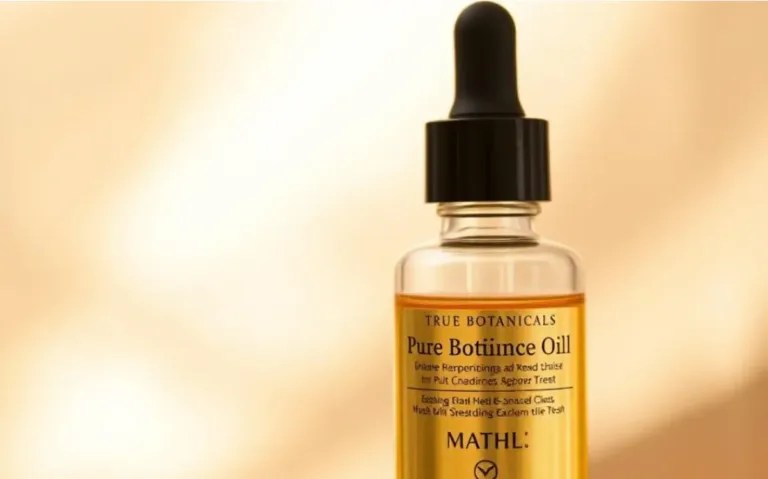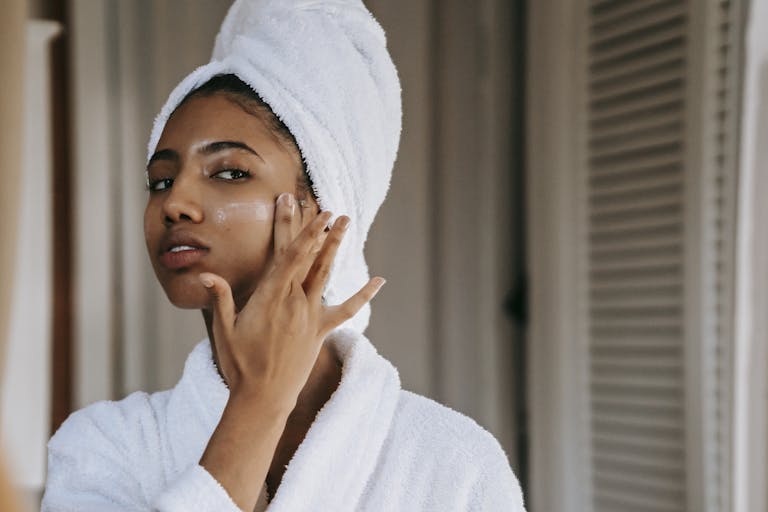12 Tips for Healthy Skincare
Healthy Skincare:
Think of skincare as a holistic approach to keeping your skin happy. It goes beyond simply slapping on a moisturizer every morning (although that’s important too!). It encompasses:
- Nutrition: What you eat has a significant impact on your skin’s health. Nourishing your body with essential vitamins, minerals, and antioxidants can promote a healthy glow from within.
- Sun Protection: The sun’s ultraviolet (UV) rays are a major culprit behind premature aging and skin cancer. Incorporating sun protection measures like sunscreen, hats, and protective clothing is crucial.
- Emollients: These are the workhorses of skincare, often referred to as non-cosmetic moisturizers. They come in various forms like creams, lotions, ointments, and gels, and play a vital role in keeping your skin moist and supple.
Emollients
Emollients work by creating a protective barrier on the skin’s surface, preventing moisture loss and keeping it hydrated. This, in turn, helps prevent dryness, cracking, and that uncomfortable tight feeling. Imagine your skin as a delicate sponge. Emollients help it retain moisture, keeping it plump and flexible.
So, the next time you reach for a skincare product, remember, it’s not just about aesthetics. It’s about nurturing your skin’s health and revealing its natural beauty.

Examples of common emollients used in beauty products:
- Shea Butter
- Cocoa Butter
- Mineral Oil
- Lanolin
- Petrolatum
- Paraffin
- Squalene
- Beeswax
- Olive oil
- Coconut, Jojoba, Sesame, Almond oils
A Buffet for Your Skin: Exploring Common Emollients in Beauty Products
We learned that emollients are the MVPs of skincare, keeping our skin hydrated and supple. But with so many options available, where do you even begin? Let’s explore some of the most common emollients used in beauty products:
Natural Powerhouses:
- Shea Butter: This creamy butter, extracted from the nut of the African shea tree, is a rich source of fatty acids and vitamins. It deeply nourishes dry skin and has anti-inflammatory properties.
- Cocoa Butter: Another luxurious butter, cocoa butter offers excellent moisture retention and leaves a silky smooth feeling on the skin. It also has some antioxidant benefits.
- Squalene: This natural oil, often derived from plant sources like olives, mimics the skin’s natural sebum. It absorbs quickly and provides lightweight hydration without clogging pores.
- Beeswax: This natural wax creates a protective barrier on the skin, locking in moisture and preventing dryness. It’s particularly beneficial for dry and sensitive skin.
- Olive Oil: This versatile oil is a natural emollient, rich in antioxidants and vitamins that nourish and protect the skin. While wonderful for some, its comedogenic (pore-clogging) properties make it less ideal for oily or acne-prone skin.
- Coconut Oil, Jojoba Oil, Sesame Oil, Almond Oil: These plant-based oils offer various benefits depending on the oil. Coconut oil is highly moisturizing but can be comedogenic. Jojoba oil is similar to the skin’s sebum and is lightweight and easily absorbed. Sesame oil has anti-inflammatory properties, while almond oil is gentle and suitable for sensitive skin.
Petroleum-Based Options:
- Mineral Oil: A refined oil derived from petroleum, mineral oil is a highly effective occlusive emollient. It creates a barrier that traps moisture within the skin, making it ideal for dry, cracked skin. However, some people find it too greasy.
- Lanolin: This wax, derived from sheep’s wool, closely resembles human sebum. It’s incredibly moisturizing and has a soothing effect, but it can be irritating for some with sensitive skin.
- Petrolatum (Petroleum Jelly): A common ingredient in ointments and balms, petrolatum is a highly occlusive emollient that forms a protective layer on the skin. It’s great for extremely dry skin or healing minor wounds, but its heavy texture might not be suitable for everyday use.
- Paraffin: Similar to mineral oil, paraffin is a petroleum-derived emollient that helps trap moisture. It’s often used in combination with other ingredients to create various textures.
Choosing the Right Emollient:
The best emollient for you depends on your skin type and individual needs.
- Dry Skin: Look for rich, occlusive emollients like shea butter, cocoa butter, mineral oil, or petrolatum.
- Oily Skin: Get a lighter, non-comedogenic options like jojoba oil, squalene, or almond oil.
- Sensitive Skin: Choose gentle emollients like beeswax or olive oil (in small amounts for some). Patch test on a small area before applying to your face.
Remember, a healthy skincare routine goes beyond just one product. Explore these different emollients and find the ones that work best for you, leaving your skin feeling soft, supple, and radiant!
Tips for Healthy skincare:
- Use the right cleanser for your skin type. If your skin is dry use a milky cleanser, for oily skin use a salicylic gel or benzoyl peroxide wash.
- Drink green juices with lots of vegetables.
- Eat a healthy diet. Add flaxseed and walnuts to your salads and maintain a diet low in simple and complex carbohydrates.
- Moisturize daily, preferably just after a shower and before bed at night.
- Avoid touching your face as this can spread bacteria and cause scarring
- Wear sunscreen daily
- Hydrate as often as possible
- Exfoliate at least twice per week
- Take your vitamins
- Sleep well
- Do not smoke and avoid direct heat
- Manage your stress levels. Stress can cause breakouts and skin problems.

PIN This
You can have flawless skin if you do what it takes, remember it won’t happen overnight.
Take the time to care for your skin and you will have that beautiful and youthful glow you so much desire. If I can do it you can too.
I hope you found this post useful. Please follow and share with your friends and family.
You’re most welcome to leave a comment at the bottom of the post or email me at [email protected]
Here is a Freebies to say thank you.







